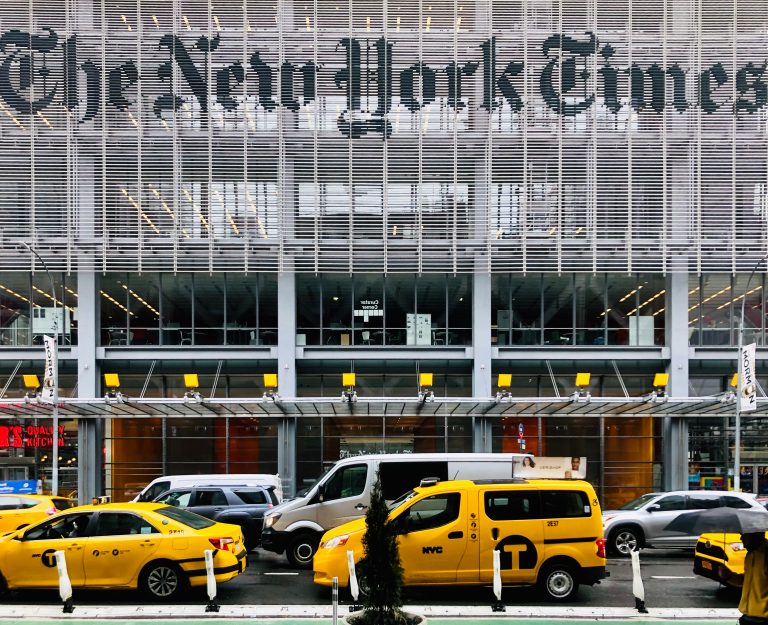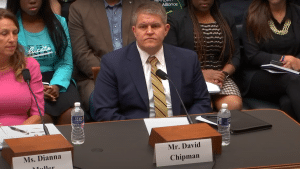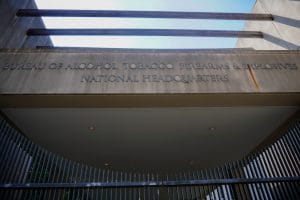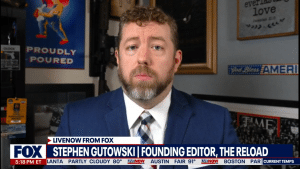ATF director nominee David Chipman faced little scrutiny in his first interview since President Joe Biden pulled his nomination.
New York Times reporter Glenn Thrush described Chipman as “brash” and “one of the country’s most prominent gun control activists.” Much of the piece is dedicated to a false claim about Chipman’s time in Waco and paints Chipman as the victim of a smear campaign the White House refused to push back against. Despite declaring the story a product of a “far-ranging interview,” the Times report does not include any comment from Chipman about the multiple allegations of racism directed against him by ATF agents, nor does it even mention them in the piece.
Instead, the reader is presented with the image of Chipman being told his nomination would be pulled while he “stood near a field of sunflowers” despite “all he had been through.” No such sympathy is reserved for the black ATF agent who told The Reload Chipman attempted to end his career by making a false accusation he cheated on a promotion assessment.
“I believe it had to have been a bias,” the agent, who spent more than 25 years at the agency, said in August. “My answers were just ‘too good.’ And my thought is he just said, ‘this black guy could not have answered this well if he wasn’t cheating.'”
The story, as well as previous allegations Chipman made racist comments implying Black agents could not have passed such assessments without cheating, received little coverage outside of right-leaning media. Outlets including the New York Times, CNN, MSNBC, and the Washington Post skipped the piece. On Capitol Hill, the allegations made an impact. Every Republican on the Senate Judiciary Committee signed a letter calling for a second hearing on Chipman while citing the allegations, and Senate Minority Leader Mitch McConnell (R., Ky.) called on President Biden to withdraw his nomination. Ranking member Senator Chuck Grassley (R., Iowa) said he had also received whistleblower reports that independently corroborated The Reload’s reporting.
But even after Senate Republicans took action on the allegations, the story was ignored by most major media outlets. Instead, most coverage focused on the behind-the-scenes politics of the story and, especially, how Senator Angus King (I., Maine) told the White House he opposed the nomination.
The piece from Thrush forwards a narrative similar to the one Giffords, a gun-control group and Chipman’s current employer, included in a statement weeks ago: The nomination was sunk by a combination of lies about him and the gun industry’s opposition to his work for Giffords. It ignores the racism allegations and the other complaints current and former ATF agents levied against Chipman both on and off the record. Instead, it focuses on the false claim Chipman was in a picture in front of the ashes of the Waco compound, and on complaints about the years he spent as an activist.
However, despite the Times story dedicating a large portion to the Waco picture, it later undermines the idea it played any significant role in the failure of Chipman’s nomination; its own sources knocked down the idea. Unnamed sources within the White House told Thrush, “the problem was not Waco” but opposition from Senator King.
The story then asserts King’s opposition to Chipman was based on industry concerns over Chipman’s adversarial approach to regulating guns. But it again leaves out reporting that shows current and former ATF agents share this same concern. Three different agents, including two who worked directly with Chipman at ATF, warned that his confirmation could jeopardize cooperation between those who work in the gun industry and the ATF. That could hamper the agency’s ability to carry out investigations of serious violations such as criminal gun trafficking since gun dealers are often the ones who help tip off agents.
“A large number of ATF cases come from legitimate gun dealers, who see what they believe to be criminal activity,” one current agent told The Reload in July. “They see what they believe to be a straw purchase, or we’ve had countless cases referred to us where there’ll be a gun show, they’re selling in accordance with their license, they’re following the rules, and they’ll see someone selling where it’s clearly someone who’s abusing the law. I can’t even tell you how many countless cases we’ve gotten that way. So, to have someone come in who potentially could jeopardize that relationship is really concerning to most of the folks who are actually working cases. Those relationships help us put bad people in jail, which in turn, helps us keep the public safe.”
“Those positions didn’t materialize when he was at ATF,” former ATF agent Rick Vasquez told The Reload in July. “I never saw that working for him. He supported me and supported the industry. And the industry loved it.”
The agents further criticized Chipman’s fit within the agency.
“We have a few guys on my job that everybody hates,” said another former agent who worked with Chipman. “You have a few guys on my job that everybody loves. And you have guys who are in the middle. Chipman, you can’t get a read on anyway. I don’t know if he ever wrote a case. When I’m talking to my folks everyone’s scratching their head like he’s this Manchurian Candidate. No one can even nail down who knows him, who hung out with him, who he was buds with. That’s what scares the shit out of me. There’s so much more that we don’t know.”
Seven more former ATF agents penned a letter to the Judiciary Committee voicing similar concerns in August. There were no letters or public comments from current or former agents supporting Chipman during the same time frame.
Chipman has not responded to either the allegations of racism levied against him or the critiques about his time as an ATF agent or his adversarial approach to the gun industry. That tactic has been made easy by the lack of questions from major media outlets, even when they directly interview him as in this example from the Times.






